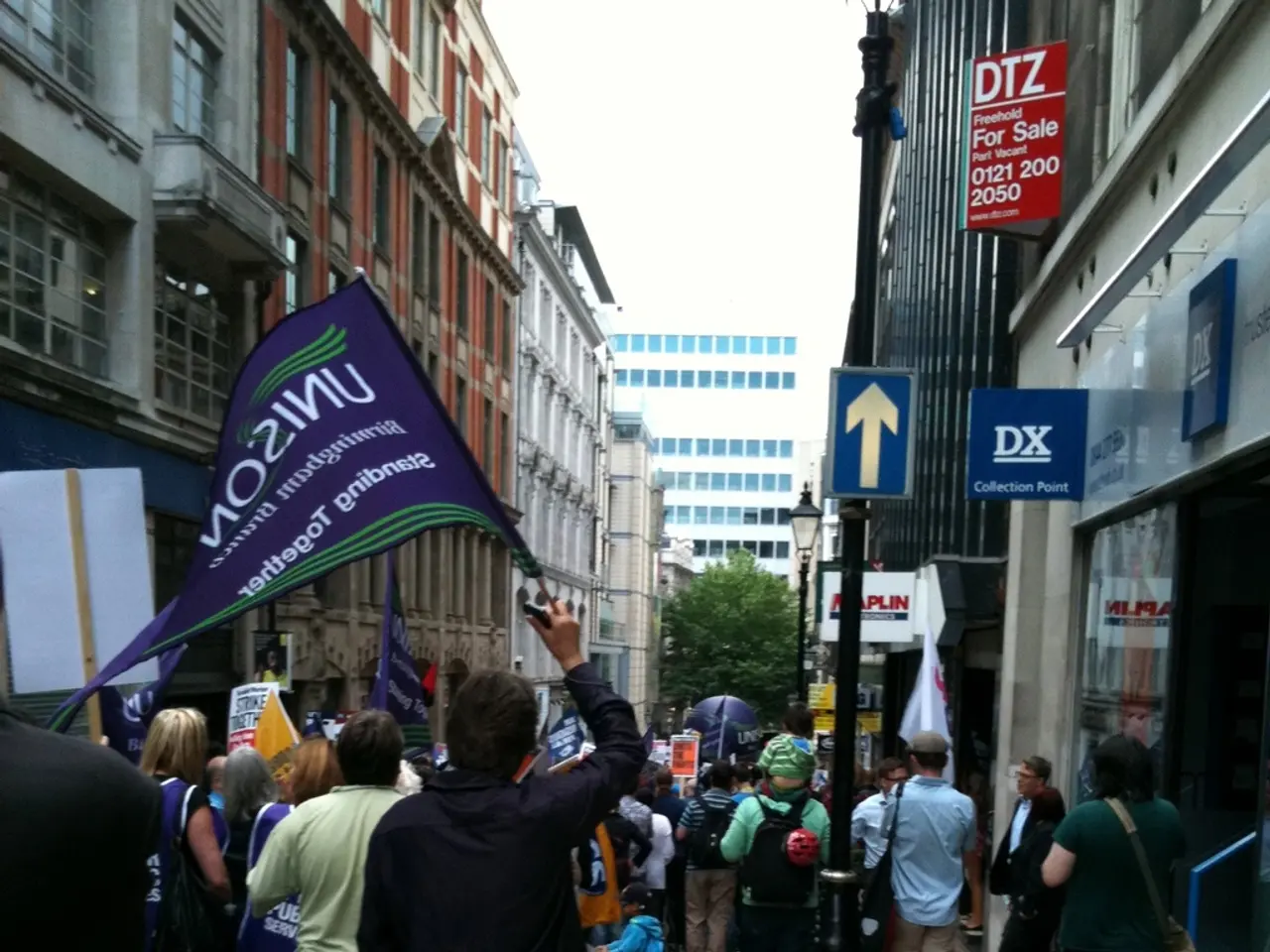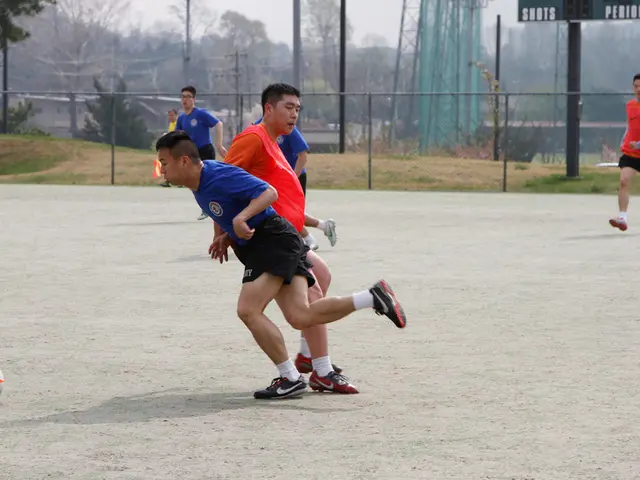Municipal Clock Displays
The Augsburg city council serves as the primary decision-making body for key urban governance areas in the city, including urban planning, school improvements, and social projects. Comprising 61 members, including the Mayor, the council is directly elected by residents every six years.
In urban planning, the council makes decisions on development projects, zoning, and infrastructure improvements to guide the city's growth and sustainability. For schools, the council allocates resources for improvements and may set local education priorities in cooperation with educational authorities. Regarding social projects, the council approves initiatives aimed at enhancing social welfare, integration, and community services.
The council's decision-making process is supported by committees, which relieve the council and enable intensive preliminary treatment of topics in a small group. These committees are responsible for topics such as culture, sports, the environment, and more. Professional council members, called referents, head the departments and are civil servants on a temporary basis.
Citizens in Augsburg can participate in the public sessions of the city council or committees. Public engagement may include attending meetings, submitting petitions, attending public hearings, or participating in citizen forums organized by the council. Information about upcoming meetings, including live streams, published minutes, or local broadcasts, can be accessed through official city channels.
The Mayor, either directly elected by citizens or chosen by the council, acts as the head of the city government and plays a central role in implementing council decisions, managing administrative functions, and representing Augsburg. The Mayor also has the 61st vote in the city council.
Politically like-minded council members can form factions for the respective term, and independent individuals can run for election. Council members submit draft resolutions as applications for the preliminary agenda of the Augsburg city council. The administration implements the resolutions on behalf of the Mayor.
For more specific details on Augsburg's procedures and schedules for meetings, one would need to consult Augsburg's official city website or contact the city administration directly. The Mayor is represented by a second and third mayor, as well as currently five other honorary council members appointed by the city council. Draft resolutions are internal preparations by the administration for the Augsburg city council.
[1][4][5] - Sources reflecting typical structures in German cities.
The Augsburg city council, in its role of making decisions on urban planning, policy-and-legislation, and social projects, allocates resources for school improvements and approves initiatives aimed at enhancing social welfare, integration, and community services. Council members can submit draft resolutions as applications for the preliminary agenda of the council, with the administration implementing the resolutions on behalf of the Mayor.
Citizens in Augsburg can engage in the public sessions of the city council or committees, either by attending meetings, submitting petitions, attending public hearings, or participating in citizen forums organized by the council. Information about upcoming meetings, including live streams, published minutes, or local broadcasts, can be accessed through official city channels.








